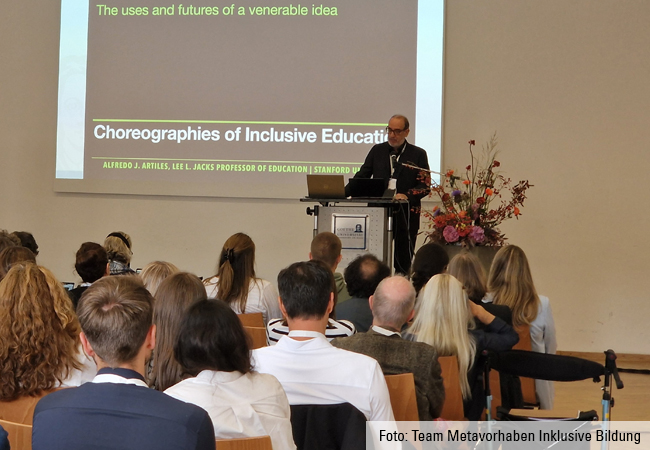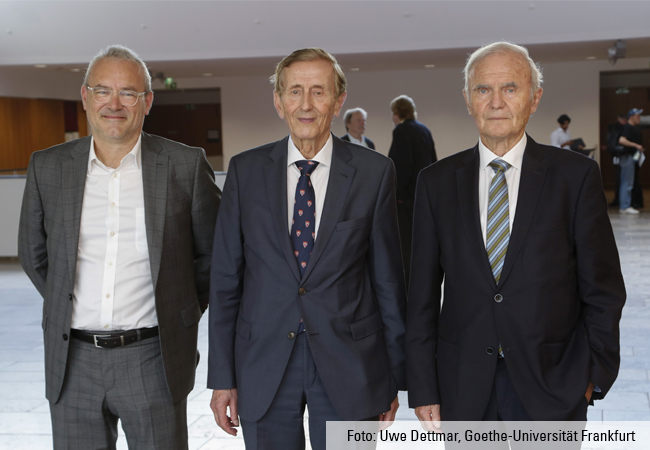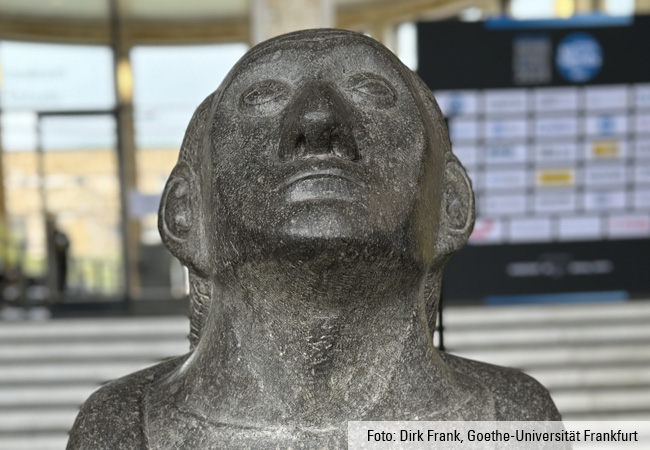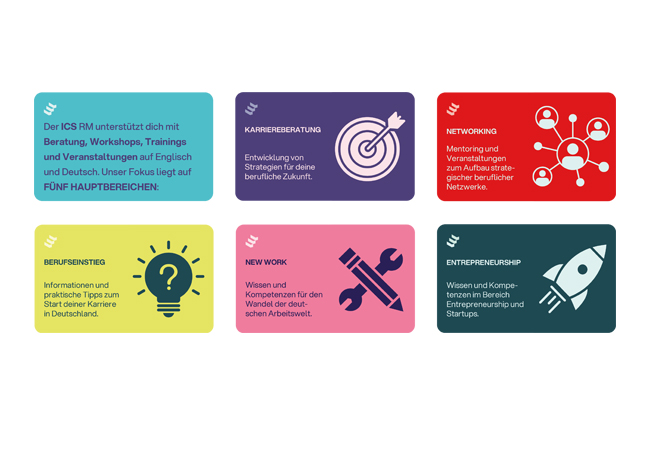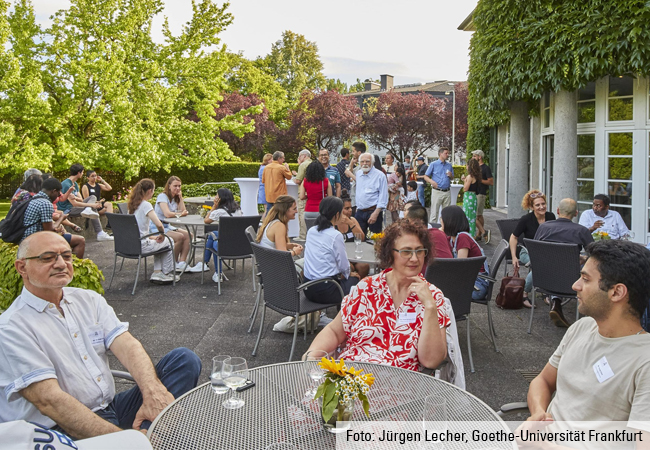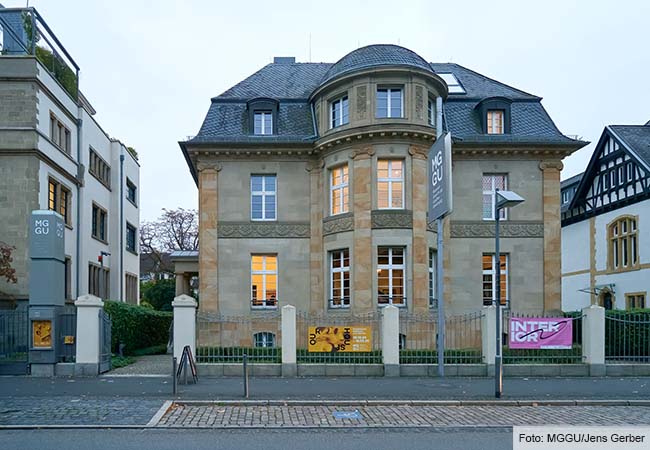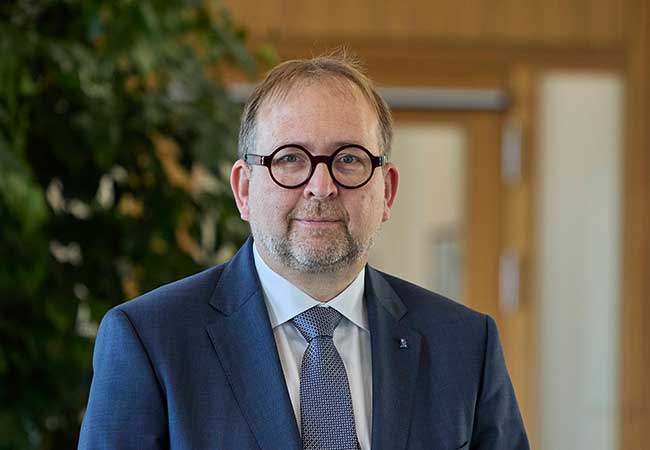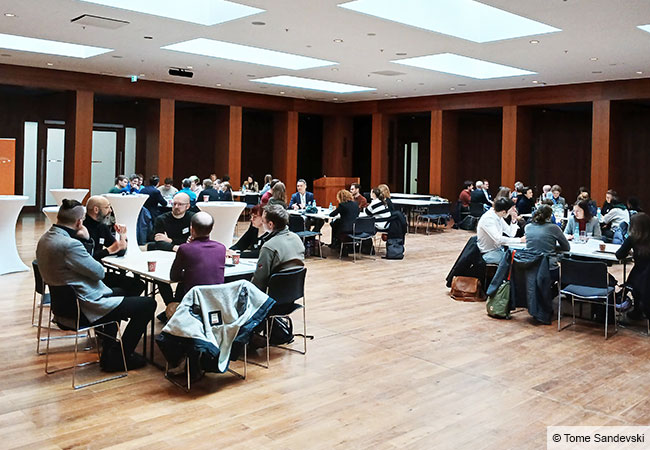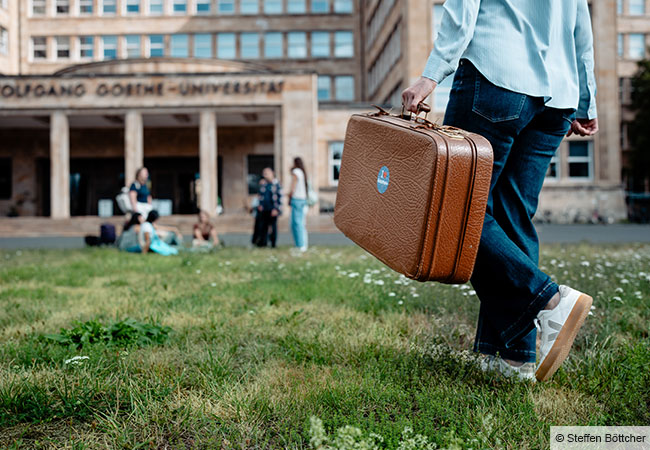The aim of the “Democracy and Participation” project developed by the Academic Welcome Program (AWP) for highly qualified refugees, part of Global Affairs Study Teaching (SLI, Studium Lehre Internationales), is to encourage prospective and enrolled students who have experienced migration and flight as well as international and domestic students to participate in democratic processes in theory and practice in the academic context.
The project is particularly important because of the increasing diversity of students at Goethe University Frankfurt, who often bring with them different experiences and perspectives on democratic processes. The university recognizes the need to strengthen both the integration of all students as well as their active participation in social and political life. In view of the rise of nationalist tendencies and the polarization of society increasingly observable, it is important to create an arena for open discussion and learning opportunities. The event series is open to participants of the Academic Welcome Program, enrolled students and students attending preparatory courses (Studienkolleg).
Pilot phase: A multidisciplinary event series
The project is structured in three thematic areas, which will be explored within an interdisciplinary series of events, consisting of lectures, workshops and visits, from the 2024/25 winter semester onwards.
The first thematic area, “Democratic Processes and Social Cohesion”, started on October 16, 2024, with a lecture by Michael Zimmermann-Freitag (former regional manager of the welfare association Der Paritätische Hessen) on “Social Organizations in Germany and their Democratic Structures”. In his lecture, he gave an introduction to Germany’s social structure and policy, with a particular focus on the most important state-financed welfare organizations and the current challenges for social cohesion. The lecture was supplemented on October 23, 2024, by a workshop, “Betzavta – Concrete Examples of Democratic Negotiation Processes”, led by Werkstatt für Demokratieförderung e. V., a charitable organization in Marburg. The workshop aimed to strengthen individual decision-making skills and encourage participants to show shared commitment.
Within the second thematic area, “Democratic Self-Determination and Active Participation in Civil Society”, there will be an opportunity on November 6, 2024, to visit the city’s Office for Multicultural Affairs. Dr. Armin von Ungern-Sternberg, its director, will welcome the participants and chair an interactive, multidisciplinary discussion. This will be followed on November 20, 2024, by a workshop led by Dr. Daniel Mullis (Peace Research Institute Frankfurt (PRIF) and Gelincik Tuzcu (project manager for the MOND initiative, in which the KUBI association is networking immigrants’ organizations)). In this workshop, participants’ different experiences of democracy will be analyzed and discussed, with the aim of shedding light on complex perceptions and experiences with democratic processes in practice, identifying where action is needed and exploring possible ways forward.
The third thematic area centers on “Germany as a Host Country: Historical Responsibility and Current Political System”. On January 15, 2024, Professor Rainer Forst from Goethe University Frankfurt will hold a lecture on the concepts of tolerance and solidarity. A visit to the Bildungsstätte Anne Frank (Anne Frank Educational Center) on January 20, 2024, during which the participants will be able to take part in a guided tour of the learning lab and then engage in a joint discussion, will conclude this thematic area. The aim of the visit is to sensitize the participants towards the importance of the culture of remembrance and Germany’s historical responsibility in the global community.
To be continued…
In terms of its methodological implementation, the project envisages a mixture of theoretical lectures and practical workshops, which are intended to give the participants a holistic understanding of democracy and participation from different perspectives. To foster active participation, the events are fundamentally discursive. If the project is successful, there are plans to continue and expand it in future semesters, including a possible widening of the thematic areas as well as recording the lectures and making them available to a broader public. Goethe University Frankfurt sees this project as an important step towards a more inclusive and participatory society that benefits from the diverse experiences and commitment of its members.
Alberto A.


